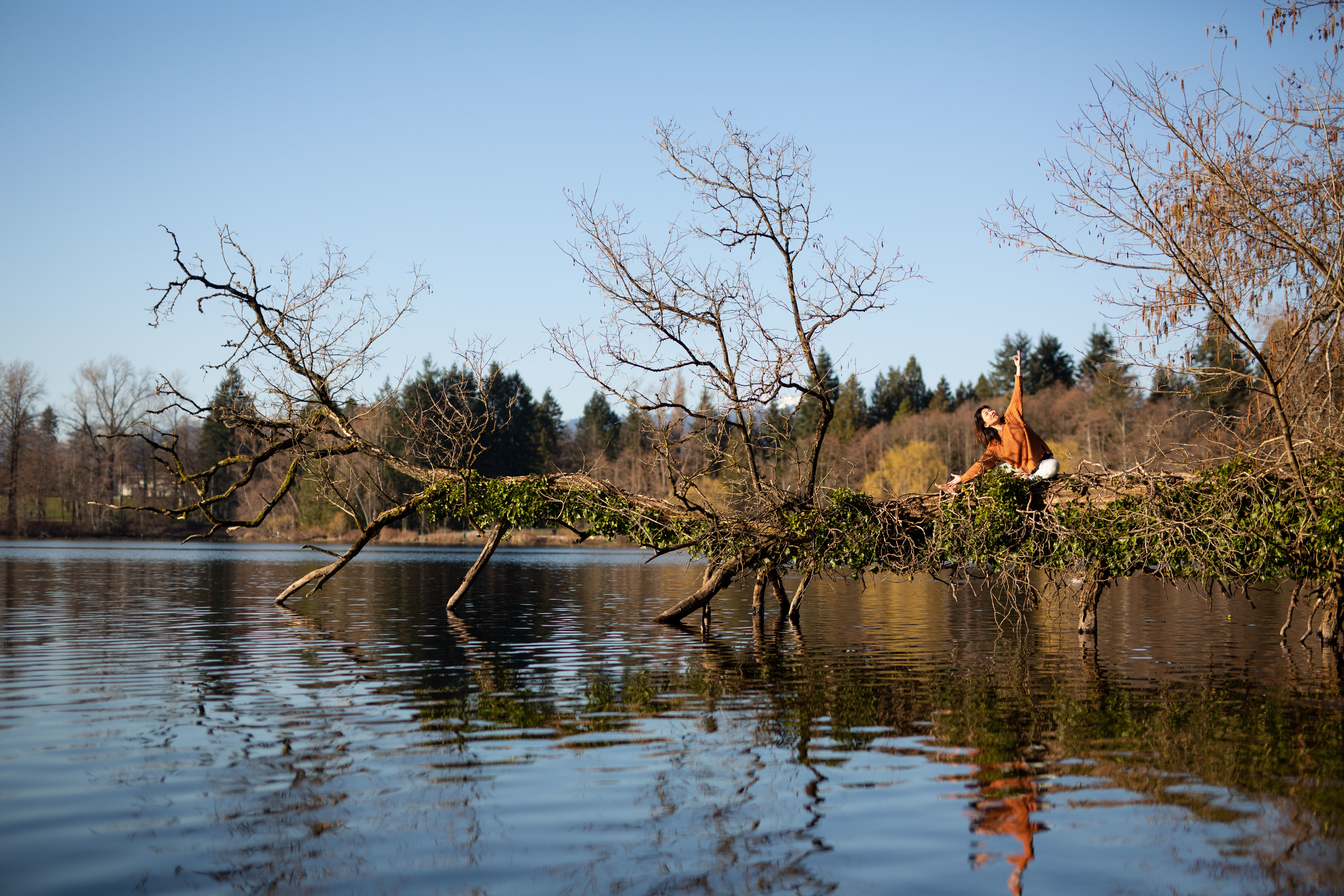March 28, 2020
The COVID-19 pandemic seems to be turning our lives upside down. Yet yoga teacher Peter Elmas says he feels grounded, balanced, calm, and healthy. Hard to believe until you see him stand on his head for a couple of minutes.
For those who have not spent almost two decades practising yoga as Elmas has, what can we do to find some peace?
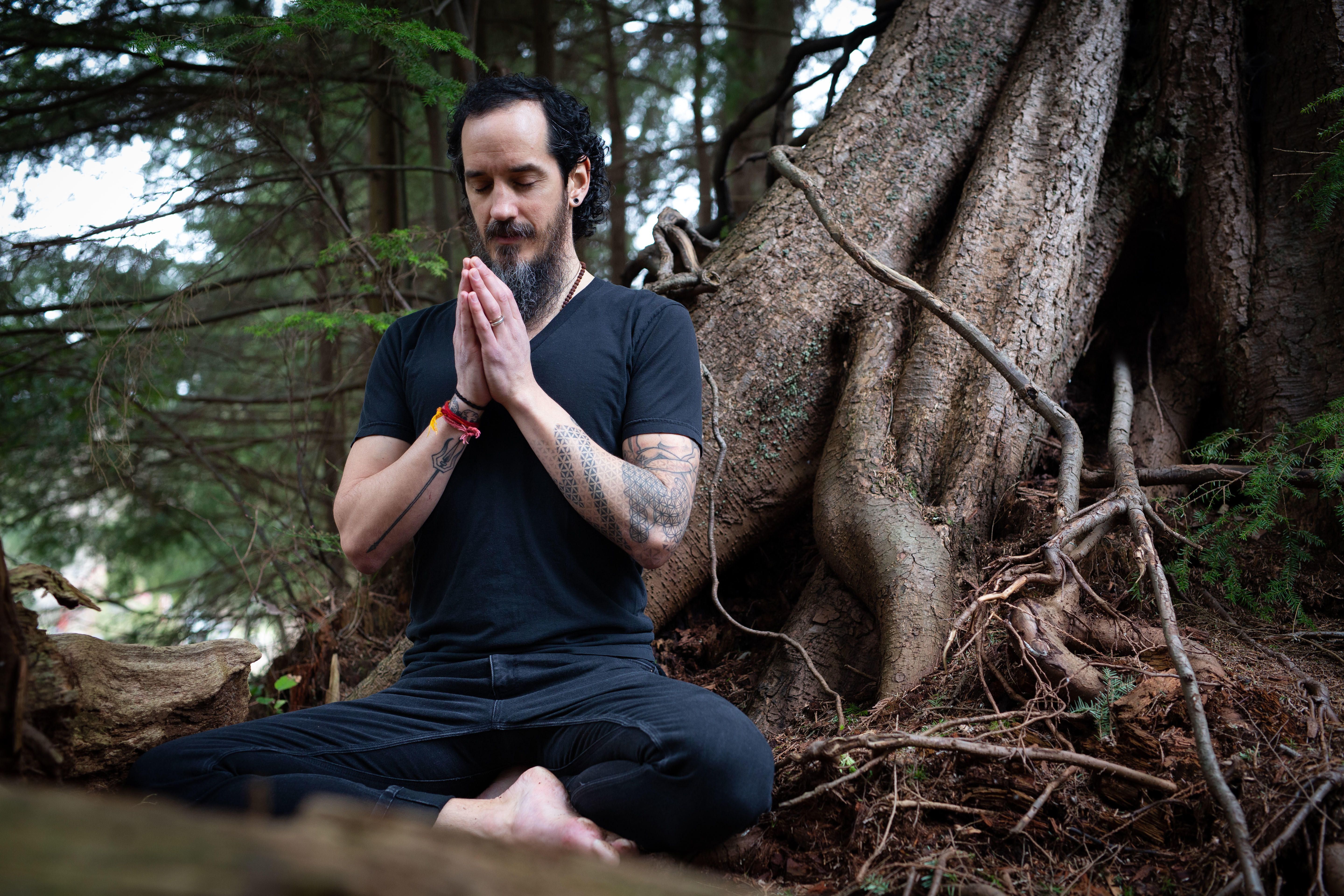
It’s all about the breath
Simply paying attention to your breath can calm your nervous system, Elmas says.
He suggests sitting or lying somewhere quiet. Look at a point ahead of you and notice your breathing. As you inhale and exhale, feel your stomach expand and contract. Slowly count to three while inhaling, and backward from three while exhaling. Repeat for as long as you feel you need to.
“Finding that consistent rhythm has a profound and immediate effect on the mind, on the body, and on the mood,” Elmas says.
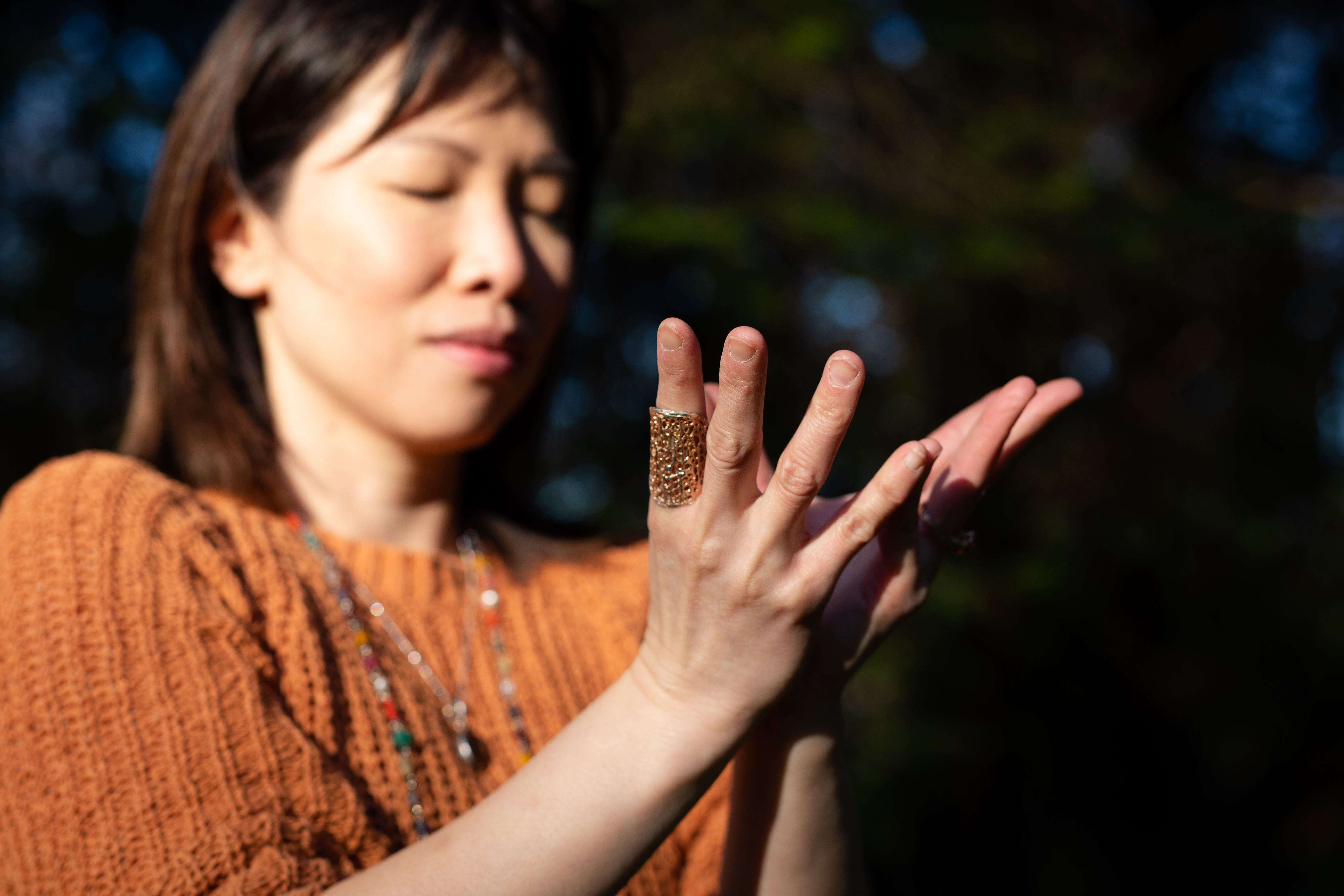
Being mindful is healing
Zoe Ho is a yoga therapist. Her work involves empowering people to become aware, or mindful, of the pain and suffering in their own bodies which she says often leads to personal epiphanies.
“Being mindful is very healing,” Ho says.
“[When you do a yoga pose], you become more aware of how you’re placing your feet, how you’re extending your fingers, how you’re drawing certain bones down, and how you feel when you treat yourself well.”
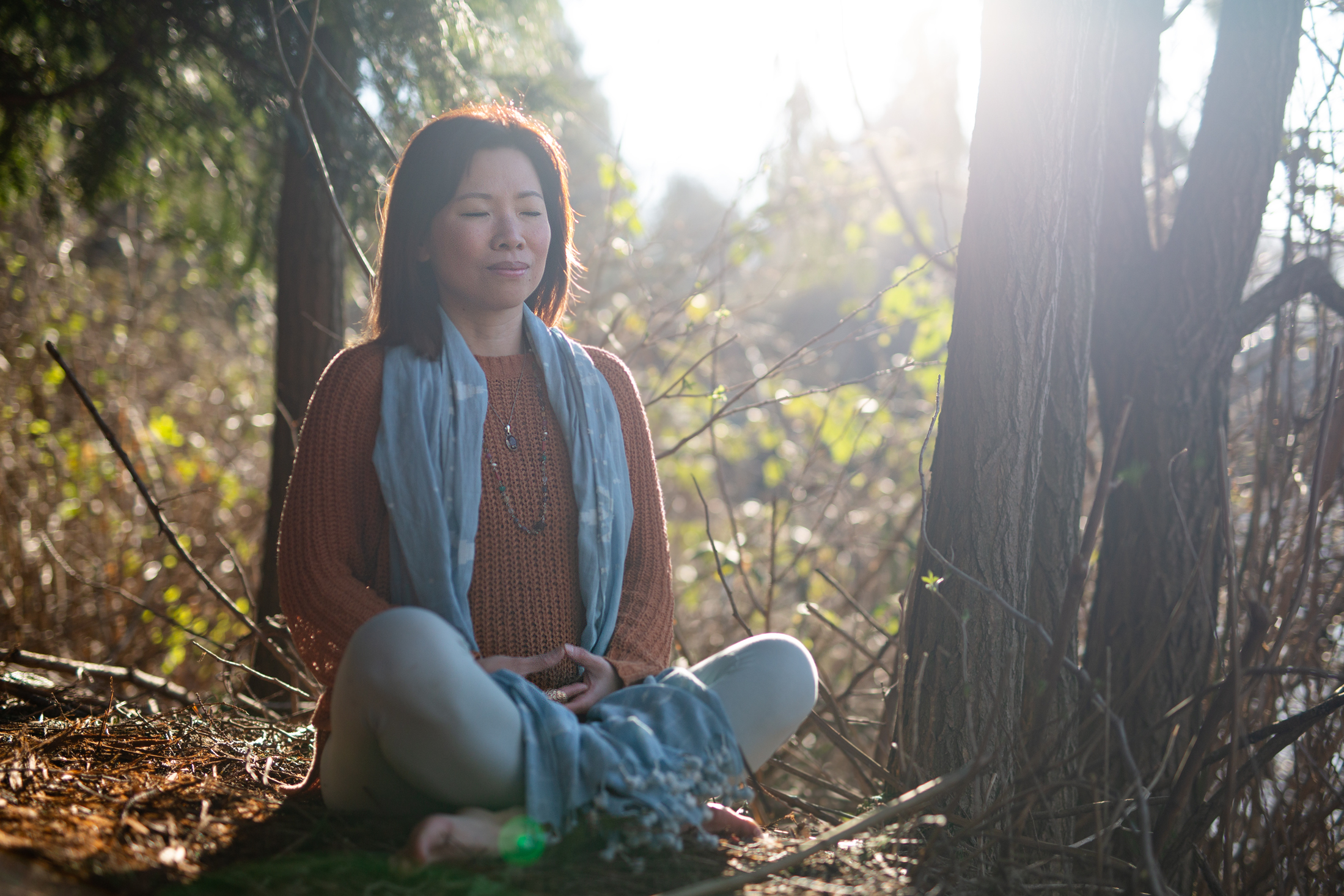
If you are feeling fearful, Ho suggests not judging yourself or blocking the fear. Instead, take five minutes to sit with it.
How does it feel? If it’s a knot in your throat, imagine the shape of that knot. Then imagine it’s in a museum, like a sculpture that you can survey from three feet away. What colour is it? Can you give it a humorous name?
“Maybe Anxious Annie,” Ho laughs, adding that humour helps too.
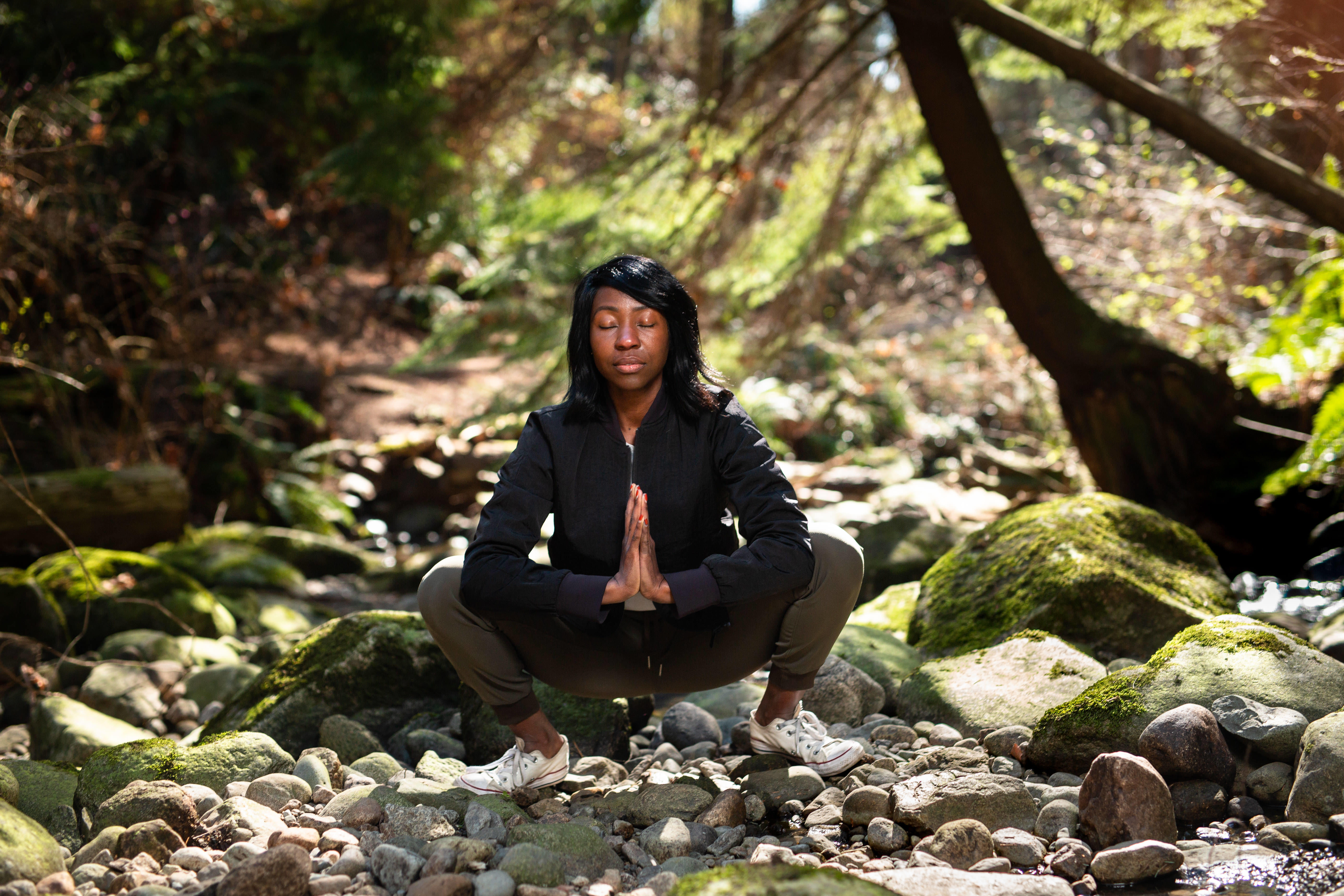
Yoga is not escapism
Yoga instructor Melissa Nkomo does not encourage people to use yoga as escapism.
“If you want to dive into any form of self-care, do it to genuinely take care of yourself and be aware of how you’re feeling throughout the current event versus trying to escape,” Nkomo says.
“Yeah, we could all Netflix and chill for the next eight weeks or so but it doesn’t make us any less fearful."
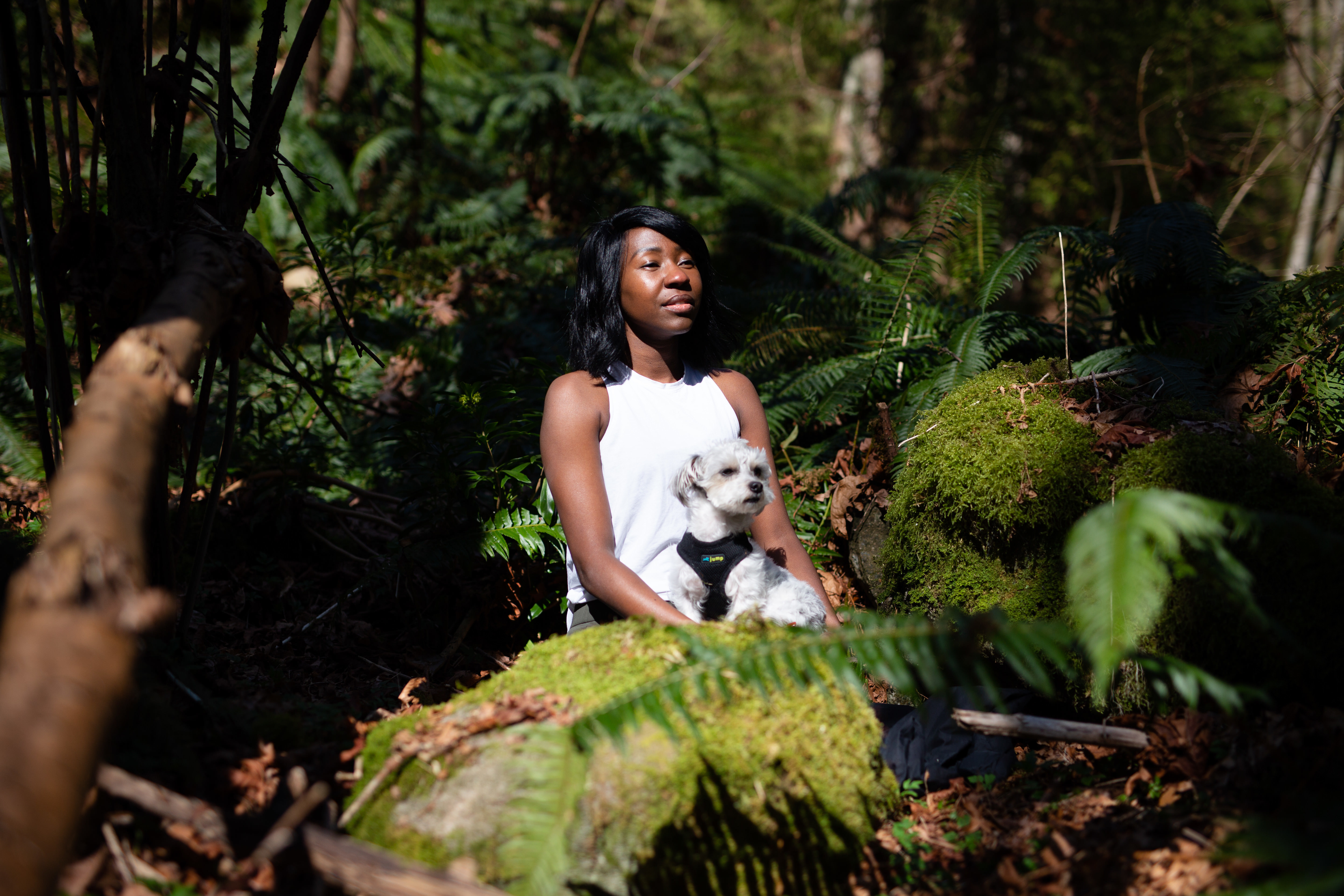
The three yoga studios Nkomo teaches at have now closed due to the pandemic — one permanently because it didn’t see itself surviving the hiatus. Many teachers are now offering online classes or video tutorials.
She says being unemployed is uncomfortable, but she trusts that it is ultimately temporary.
“I practice [yoga] so I can be equipped for moments like this,” Nkomo says.
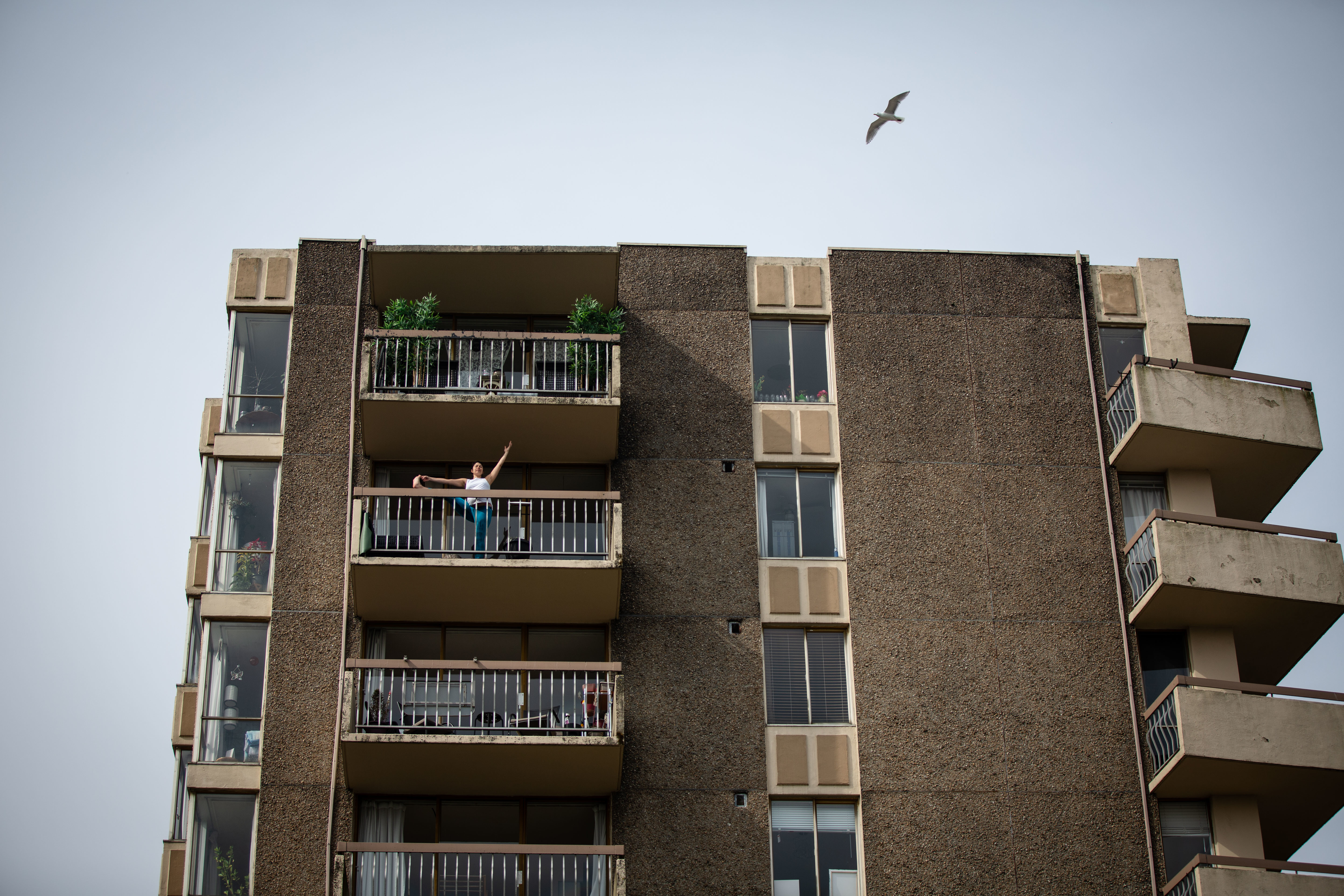
Connect to what you have
“The best thing we can do right now is take care of ourselves on all levels — emotionally, physically, energetically … and in the same breath be really loving and kind to our community,” says yoga instructor Clara Roberts-Oss.
She describes yoga as a deeper connection to what's already here.
“My soul, my breath, my body, my community, [and] the earth.”
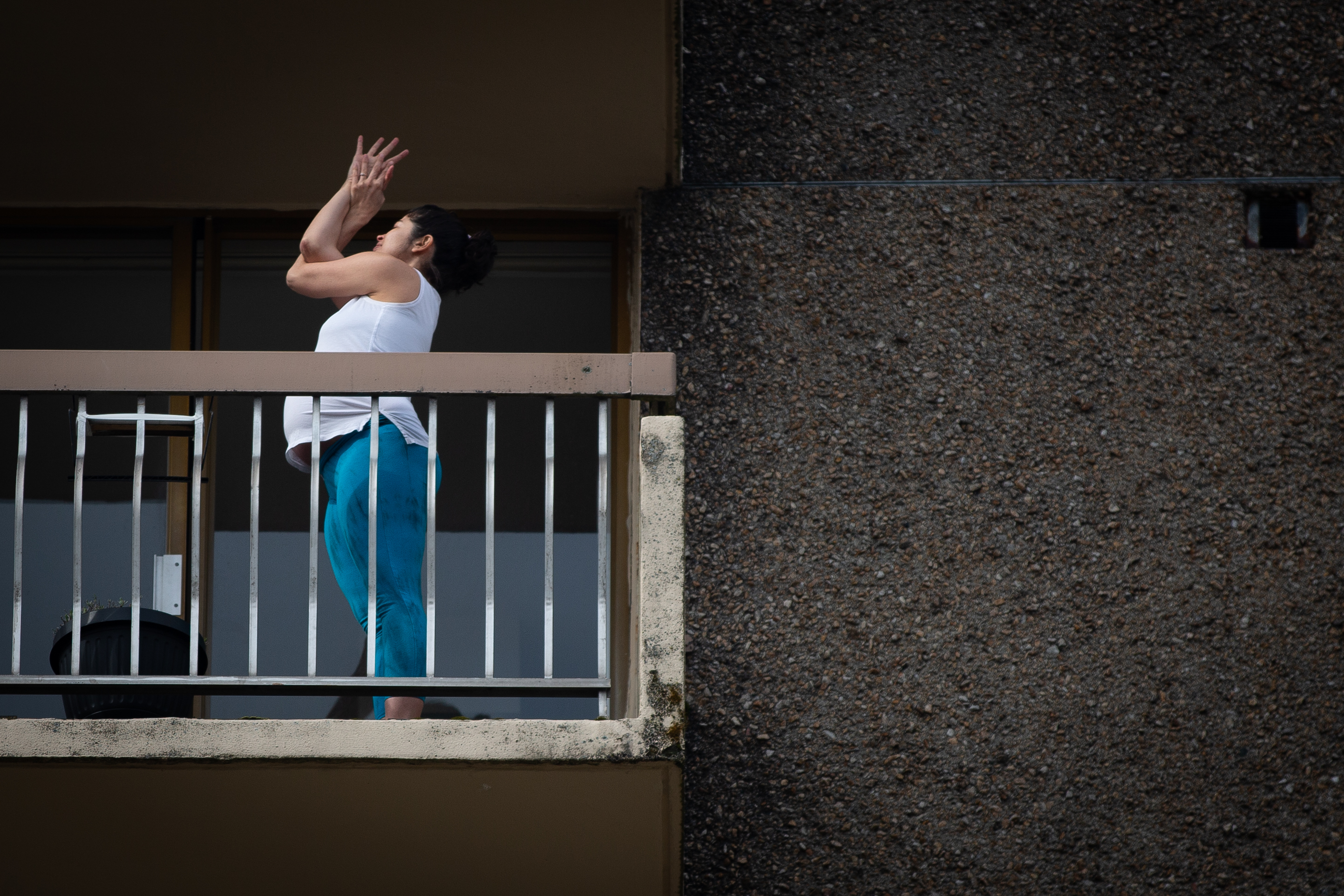
Roberts-Oss was leading a yoga retreat mid-March but cut it short out of concern for her students and herself. She is due to give birth in April. There isn’t yet clear information about how COVID-19 could affect her baby so she’s proceeding with caution and, “to the best of my ability, without fear.”
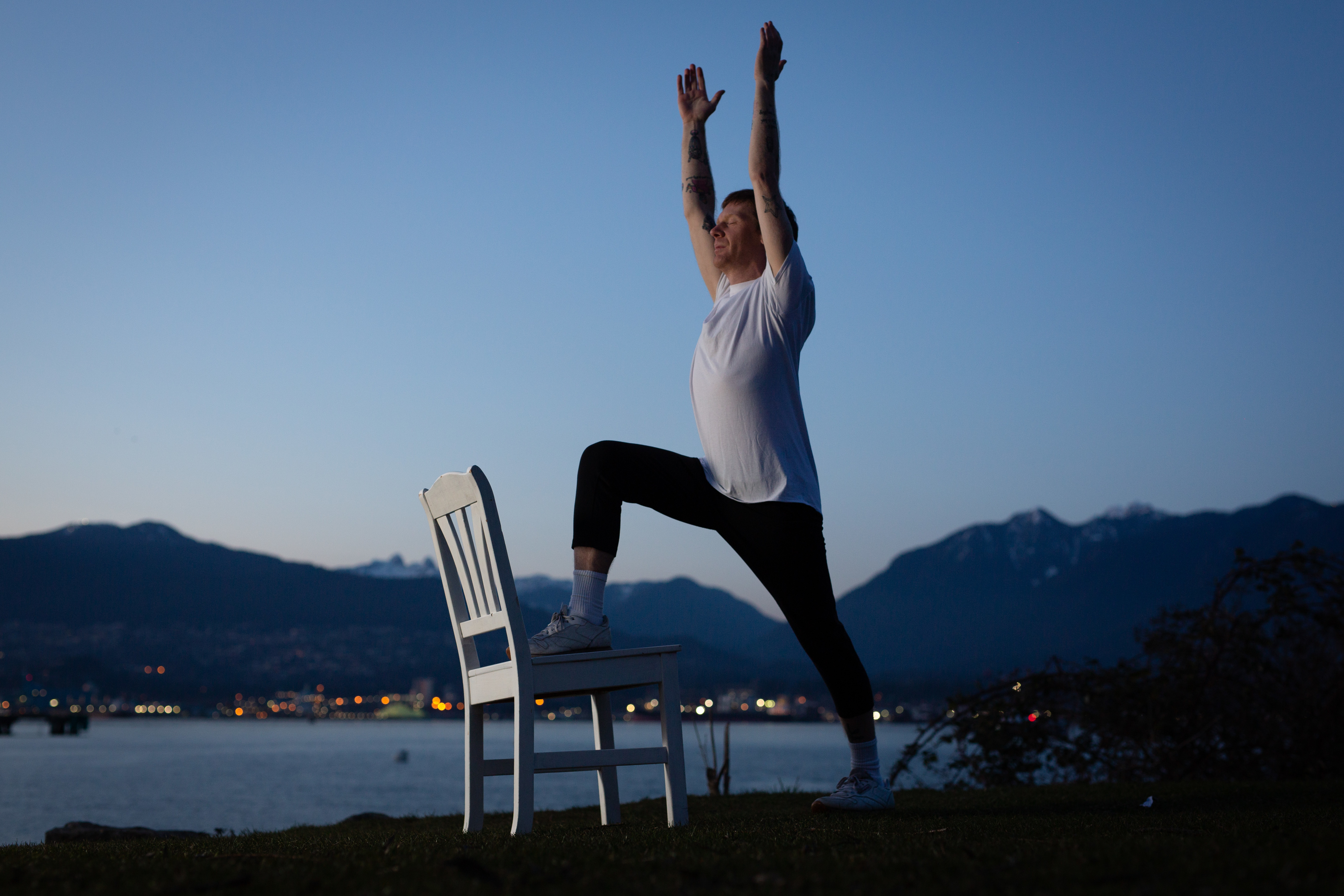
Reach out for help
Tim Bang is concerned about the effects of further isolation on people struggling with addiction.
“Six years ago, this would have given me every reason to use,” Bang says.
If you feel like turning to drugs or alcohol, Bang urges you to reach out to supportive family or friends. Making contact may be hard, but “talking things out can be so beneficial.”
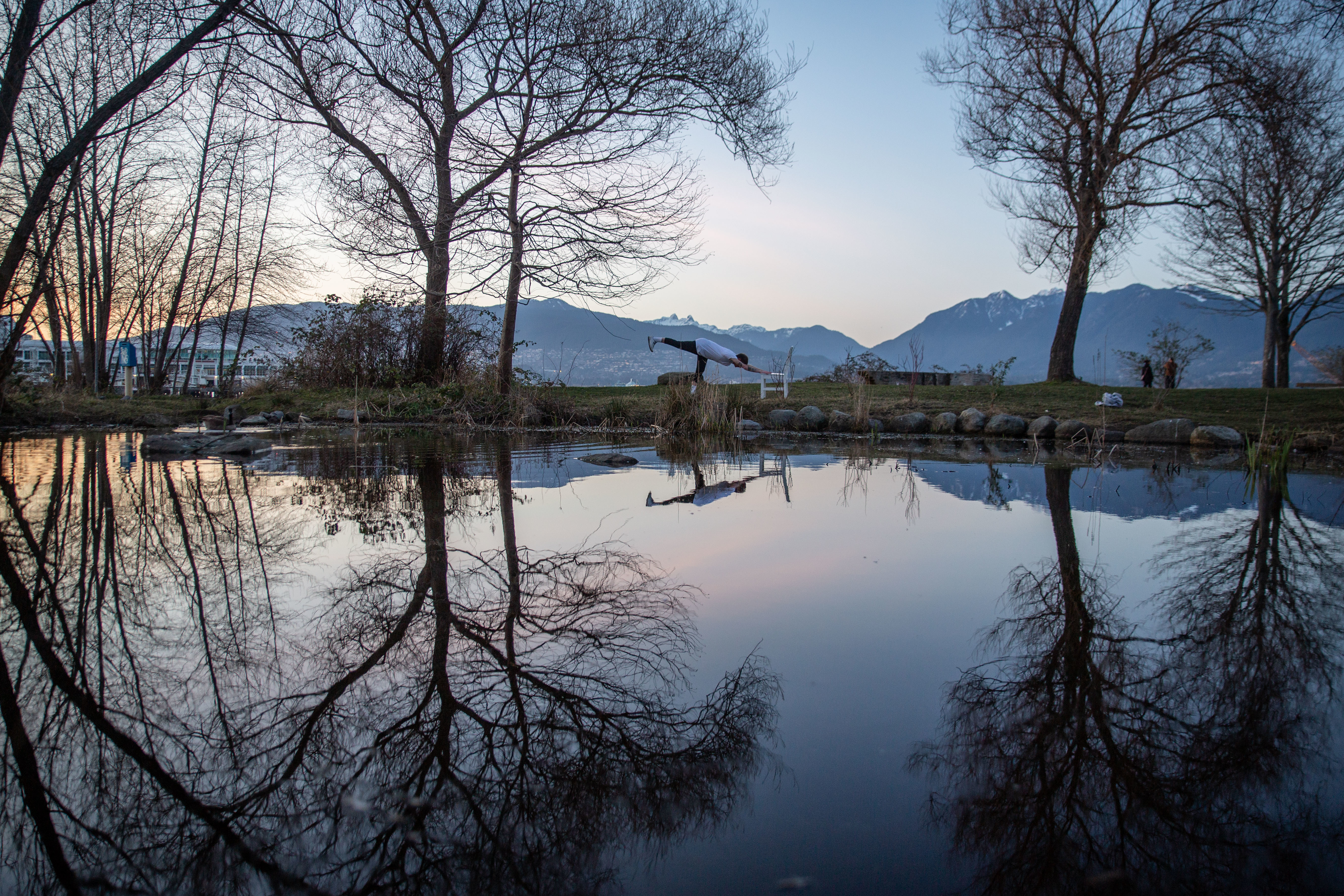
Six years ago, Bang discovered yoga at Cordova Detox, a private rehabilitation center in Vancouver that offers accessible yoga consisting of simple movements and chairs.
Since then, Bang has taught accessible yoga to people struggling with addiction at several detox and treatment centers in Vancouver, including Yoga of 12-step Recovery which combines yoga and the 12-step-based addiction recovery program.
Yoga practitioners say focusing on breath, acknowledging emotions, and reaching out to supportive people will help us all get through this crisis.
